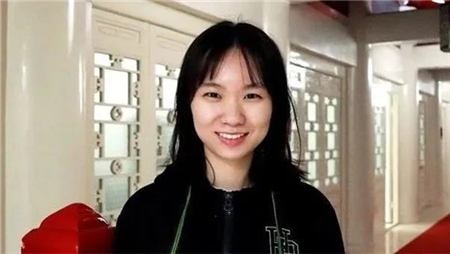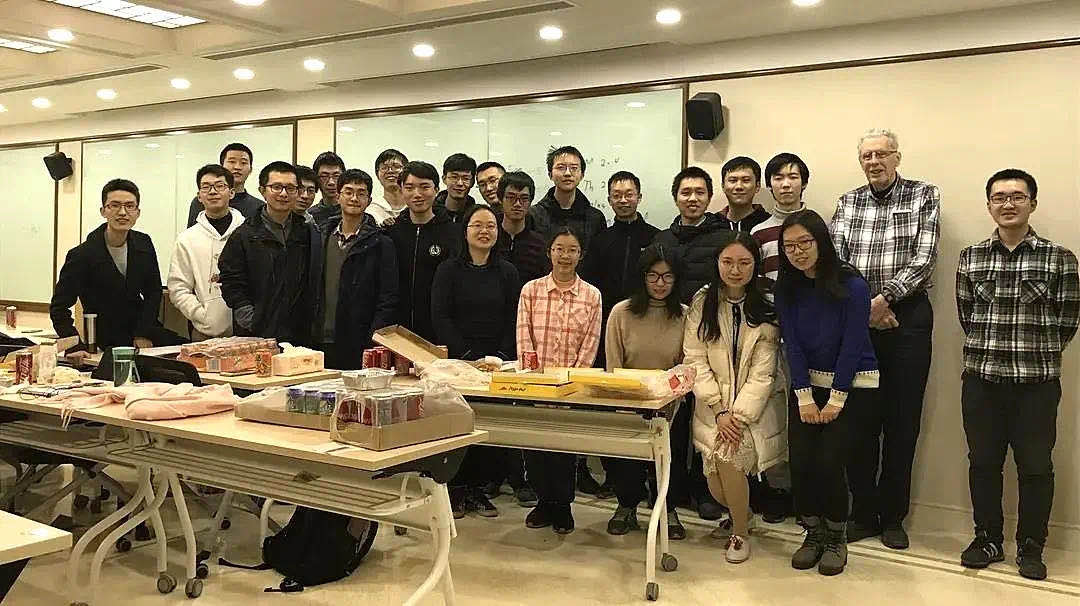[Graduation Speech] Wu Yifan: Life lessons from Turing Class
Aug 05, 2020
Peking University, August 5, 2020: Wu Yifan, representing the first batch of PKU Turing Class graduates, spoke at the 2020 graduation ceremony for the Turing Class Program of Peking University School of Electronics Engineering and Computer Science. As her speech was in English, we are delighted to share it with all of you!
Dear Professors and my fellow classmates,
I feel so honored to have the opportunity to speak in front of you at this special event. Graduating from PKU, especially from Turing Class, has been a long journey for me. I would like to share some of my memories, to remind us how far we have come in the last 3 years, and celebrate the fact that we have made it together!
Peking University is full of talents, one can easily get intimidated by those who are smarter, yet still more diligent and rounded. There's a saying in PKU, any three things that you strive to do well, there will always be someone who outperforms you in every single one of them. In our Turing Class, this depiction may even be an understatement. Three years ago when I entered Turing class, I couldn't help but wonder: what kind of a person will I come out to be?
In the first year of the Turing Class program, we were sophomore, and we had a heavy course load. I remember the time when we spent 8 hours a week together in a room in Wuyuan, reading the materials of Discrete Math, and also the nights that we spent on simultaneously debugging for 3 projects from the three heavy courses, Maching Learning, Algorithm Analysis, and Computer Vision. We have pulled through many deadlines together, through endless discussions and close collaborations, and more importantly, unyielding encouragements that we have given each other. This experience has, in retrospect, every moment and every pain worth it. The first important thing I have learned is that whenever I'm unsure of myself, just keep thinking, learning and trying, no giving up!
Professor John Hopcroft listening to Wu Yifan's speech
John was the first person who taught me how to take on a research project, and how to give academic presentations. I was too shy to say a word in class, but his encouragements really helped me to express myself. It was in John's course that I raised my first question in a class at Peking University. Then, several of my advisors helped me along the way, they encouraged me to voice my opinion in situations outside classes, in conversations, seminars, and workshops. As the second important thing that I have learned, speaking up connects with people, builds a character, and opens doors to new worlds! I am thankful that I have overcome my shyness, and feel confident in further pursuit of academic life.
The Turing Class program has designed the research rotation system for us to explore research in different areas of computer science. I had gone through different labs and tried different research subjects, such as computer vision and high performance computing; eventually, I found computational economics, or EconCS, was the one for me. It is a relatively new research area that is quite interdisciplinary and stimulating. I found my interest all because of the environment that encourages us to look for it early on before we wholeheartedly commit to it, and the mechanism that allows us to try and rotate on. So, as the third important thing, interest, is what I have fortunately found and I'm really happy for that.
Now, to the question that I wondered 3 years ago, I think I have become a more sure person. Even in a situation full of unsureness, I won't easily give up; I become more open and ready to speak up, sometimes even stepping a bit out of my comfort zone; and lastly, I want to do things that really interest me, and luckily I have found the research subject of my interest. I now understand and fully appreciate what John wrote in his letter to us about the lifelong pursuit of one's own interest. I may not be the special one - I don't have a top GPA, or a publication yet, but I'm exploring on my own way with enthusiasm, in my own pace. I know all of you, my friends in the class, have each found your way and taking your own pace.
From here, we are going to embark on different journeys at different places in the world. From this point on, our adult lives will really begin, with different excitements ahead. But one thing in common is that everyone will continue to triumph and achieve new heights. I would ask that we keep John's advise in mind, as he wrote in the letter to us: always give the kindness to others. Like our course instructors, research mentors, advisors and all the many caretakers on campus have been so kindly providing us with a privileged learning environment. We should give the same kindness to people whenever we can, especially to those in need or vulnerable. To larger extend, we have the responsibility for the betterment of the world.
Last but not least, I want to express my gratitude to the Turing Class program and people behind it, and my sincere thanks to John for spearheading the program, and the Center on Frontiers of Computing Studies for hosting us, for giving us a home away from home. Finally, thank you all for your company, friendship, and mentorship! I wish you all the best!
Professor John Hopcroft's feedback after listening to Yifan's speech
Source: PKU Center on Frontiers of Computing Studies
Edited by: Pu Hairui
Photo: PKU Center on Frontiers of Computing Studies




